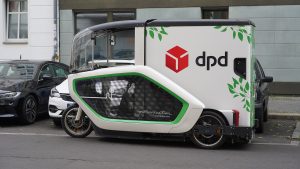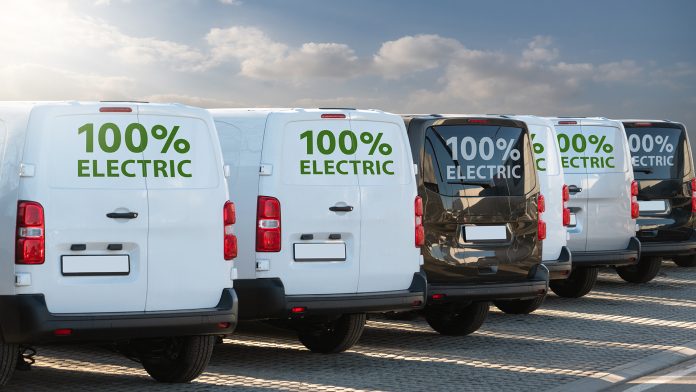A new study led by EIT InnoEnergy found that mixed electric fleets of e-cargo bikes and e-vans can save urban logistics providers significant costs.
The research shows that for a large logistics player delivering two billion parcels per year, a mixed electric fleet of 80% e-cargo bikes and 20% e-vans could save ~€554m by 2030.
Compared to a 100% e-van fleet, mixed electric fleets could also reduce last-mile logistics emissions by up to 80%.
The announcement arrives as logistics firms strive to enhance profits and lower CO2 emissions amidst the surge in parcel volume driven by e-commerce, which has been escalating by 8-14% annually in the European Union.
At the same time, regulations such as Stockholm’s upcoming inner-city ban on combustion-engine vehicles are creating pressure on logistics operators to decarbonise their last-mile delivery operations.
The new study aims to address an existing knowledge gap regarding the cost, operational, and sustainability impacts of adding e-cargo bikes to fleets. The report provides clear comparisons between ICE van fleets, e-van fleets, and mixed fleets.
“Logistics providers today are dealing with many simultaneous challenges: rising parcel volumes, stricter city regulations, and the need to save costs in a low-margin business,” said Jennifer Dungs, Global Head of Mobility at EIT InnoEnergy.
“This study demonstrates that e-cargo bikes are not only a sustainable way to address these challenges, but also cost-competitive and viable for major logistics players – already today, and even more so by 2030.”
E-cargo bikes reduce the total cost per parcel
The report shows that the use of e-cargo bikes reduces the total cost per parcel compared to e-vans alone, regardless of the city layout and fleet mix.

In the study’s base scenario, which assumes a delivery fleet comprising 60% e-cargo bikes and 40% e-vans operating in a major, densely populated urban area, the total parcel costs in 2023 would be €0.05 lower per parcel than those of a fleet consisting solely of e-vans (€1.36 versus €1.41).
By 2030, this difference per parcel would increase to €0.20. For a major logistics firm handling two billion parcels annually, these savings equate to approximately €95m per year in 2023 and around €390m by 2030.
In an optimised scenario (80% e-cargo bikes/20% e-vans, operating in a medium-sized city), the cost savings compared to a 100% e-van fleet would be even more significant. The cost savings would equate to €0.08, or 5.3%, less costs per parcel today (2023), resulting in total annual savings of approximately €156m for such a large logistics provider.
This cost difference per parcel would rise to €0.28, or 17.0%, by 2030, leading to total savings of approximately €554m.
Importantly, these overall savings in all scenarios occur despite additional costs incurred by mixed electric fleets. These include increased personnel costs for parcel sorters at micro-fulfilment centres and delivery riders.
Reducing emissions and traffic congestion
As well as cost savings, there are other benefits from the use of mixed electric fleets.
The study’s results show that the introduction of e-cargo bikes could reduce emissions from last-mile logistics by up to 80% across Europe’s 100 largest cities. Mixed electric fleets also reduce traffic congestion and competition for space by replacing up to 120,000 vans.
Compared to 100% e-van fleets, mixed fleets reduce pressure on local grids, saving the equivalent of up to 850 households’ annual energy demand per city.
Dungs concluded: “This study is designed to guide decision-makers in Europe through the challenges of managing growing parcel volumes, maintaining cost efficiency, and making last-mile delivery more flexible and sustainable.”









